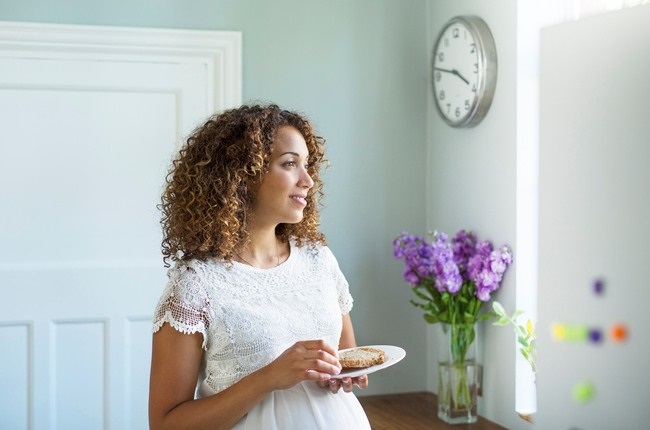
- For many women, the decision to start a family is happening much later than in previous generations.
- For those wanting to delay pregnancy, egg freezing has become a viable - but costly - option.
- The procedure doesn't guarantee a live birth, and a new study underscores some important caveats worth bearing in mind when going down this route.
Women are increasingly choosing to future-proof their family plans by freezing their eggs.
In 2020, Forbes reported that millennial women were delaying having children due to their careers, while, during the Covid-19 pandemic, many fertility clinics saw a huge jump in interest in egg-freezing procedures, as per the BBC.
A study from the NYU Langone Fertility Center previously showed that egg freezing was a more viable, but expensive, option than in vitro fertilisation (IVF) for women delaying childbearing.
The reality is that women are born with a finite number of eggs: a newborn has between 1 and 2 million eggs, says Healthline. As we age, the number and quality of eggs continuously decline until we can no longer conceive, making preserving our fertility via egg freezing a practical option.
READ MORE | Expert explains egg freezing and its importance for women who want to delay having kids
But the researchers behind the latest study to offer insights into this procedure want women to know some important caveats before choosing this route. The data from New York University Langone Fertility Center, a fertility centre in the US, is based on data from 543 patients who thawed 605 eggs at the clinic between 2005 and 2020.
It indicates that a woman’s age when freezing her eggs, as well as how many eggs she freezes, makes a significant difference in whether she will have a baby. In the study, only around 39% of women who had their eggs frozen ultimately had a baby - and the success rate declined drastically for older women.
Many women did not fall pregnant because of the age at which they froze their eggs and because they didn’t preserve enough of them.
Results from the study
Reporting their findings in the journal Fertility and Sterility, the nine researchers write:
“As OC (oocyte thaw) utilisation increases, outcome data should be published so patients can make informed decisions about the value of OC in securing their reproductive futures. To our knowledge, this is the largest US report of thaw outcomes from OC performed for age-related fertility decline.” Oocyte thaw refers to the procedure that recovers and processes a previously frozen egg.
READ MORE | Is there a right age to freeze my eggs?
Out of the study group, the average age at which women froze their eggs was 38.3 years, and, on average, they waited four years to thaw and fertilise their eggs.
While the overall chance of a woman having a baby from the frozen eggs was 39%, women who were under 38 years when freezing their eggs had a live birth rate of 51%. This percentage increased to 70% if the woman was younger than 38 and also thawed 20 or more eggs.
As the Times explains, it wasn’t the age of the woman when she used the eggs to try to have a baby that mattered. Rather, what was important was how old she was when freezing her eggs and how many she froze.
Dr Marcelle Cedars, who was not involved in the study, told the New York Times that the findings “are sobering” and “should give women pause.”
Cedars, who is professor and director of the division of reproductive endocrinology at the University of California, San Francisco, said that many women “are overly optimistic” when freezing their eggs. “The pregnancy rate is not as good as I think a lot of women think it will be,” she said. “I always tell patients, ‘There’s not a baby in the freezer. There’s a chance to get pregnant’.”
READ MORE | 'Panic parenting' fear drives many women to freeze eggs
In an article for The Conversation, one researcher writes that since the development of ultra-rapid egg freezing around 2013, more women worldwide are opting for the procedure. In France, around 2 500 women freeze their eggs each year. Yet the return rate is less than 10%.
'Women need factual and realistic information'
Egg freezing is certainly an empowering option for women who want to stop the biological clock and improve their chance of having a baby later down the line, “but they need to know it’s more like a lottery than an insurance policy,” writes Karin Hammarberg, senior research fellow, School of Public Health & Preventive Medicine, Monash University, in an article for the Conversation.
“The reality is there’s no guarantee of a baby. The procedure is expensive and not risk-free. Most women need more than one egg collection for a reasonable chance of having a baby down the track. And, for a range of reasons, many women won’t use their stored eggs,” she adds.
For women under 35 years, 41 eggs are needed to be thawed for one live birth, notes Hammarberg. This increased to 99 eggs for women aged between 38 and 40, according to US data. Using this data, an average 35-year-old woman can expect to pay up to $16 000 (R286 000) and an average 38-year-old woman up to $24 000 (R429 000) to store enough eggs for an 80% chance of having a baby.
“Women need factual and realistic information about what is possible with elective egg freezing to make informed decisions and manage their expectations,” she says.




 Publications
Publications
 Partners
Partners











